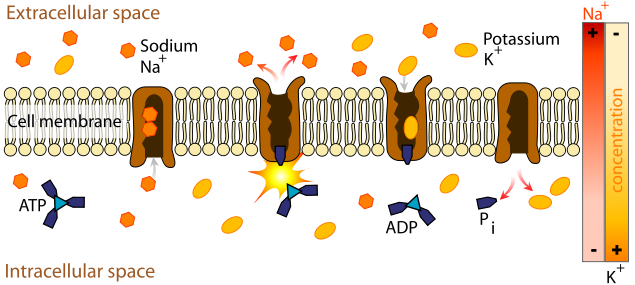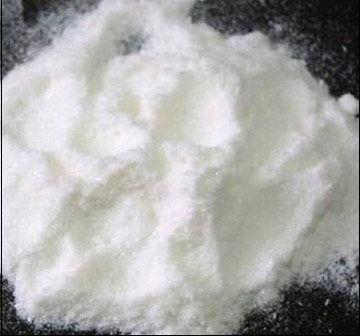 Potassium is an essential mineral that the body uses to perform various functions. The body naturally regulates the amount of potassium in the body to keep it in working order. This is done by the kidneys, the bowels and even natural processes such as sweating. Eating a diet which incorporates the recommended amount of potassium supplementation is best to keeping the body healthy. Improper amounts of potassium in absence or excess can lead to serious problems and even death. It is important to ensure that potassium levels are kept at optimum levels.
Potassium is an essential mineral that the body uses to perform various functions. The body naturally regulates the amount of potassium in the body to keep it in working order. This is done by the kidneys, the bowels and even natural processes such as sweating. Eating a diet which incorporates the recommended amount of potassium supplementation is best to keeping the body healthy. Improper amounts of potassium in absence or excess can lead to serious problems and even death. It is important to ensure that potassium levels are kept at optimum levels.
Potassium and Cell Function
The cells require potassium to perform functions for life to go on. Potassium is naturally dispersed throughout the body and absorbed by cells for use. They use potassium in conjunction with sodium to do certain functions as well. It is important to ensure that potassium is absorbed by the cells to be able to perform the following functions:
Oxygen Absorption– Cells use potassium to process oxygen for absorption. In an absence of potassium, the cells do not allow the absorption of oxygen as well which could progress to serious problems for the body.
Cell Efficiency – Potassium is used by cells to become more efficient at what they do. Blood cells carry oxygen to other parts of the body while muscle tissue performs movements. The efficiency of these cells can be lowered when there is not enough potassium available.
Nutrient Transfer – Since potassium is versatile as an element, it can bond with other substances in the body to allow for absorption and transfer of nutrients. This is important to allow nutrients to be used by the body and removed when in excess through the kidneys when the body is ready to rid of it.
Potassium in Tissue Function
Tissues as a whole require potassium to promote healthy tissue function. Promotion of healthy potassium intake ensures that the tissues work efficiently and are regulated well. The potassium and potassium and other mineral combinations are used for the following functions in tissues:
Muscle Control – Muscular control requires potassium to perform these commands from the brain. The amount of potassium in the body allows for fluid command of the muscles to ensure the best efficiency of the muscles.
Heart Beat Regulation – The heart is an essential muscle which requires an appropriate amount of potassium to work correctly. Blood pressure is also regulated by the amount of potassium in the system. When blood pressure is out of balance, the heart can function incorrectly or simply cease to work.
Potassium in Nerve Transmission Function
The use of potassium in the nervous system is very important to ensure that the body functions correctly. Since potassium is a very versatile electrolyte when used in the blood, it performs functions that are essential to the system as a whole. The following are important processes that potassium contributes to:
Enzyme Systems – When the body produces enzymes to control certain parts of the body such as ATPase functions for muscle control or pyruvate kinase which aids in carbohydrate metabolism.
Brain Function – Without enough potassium in the system, confusion or damage to the ability to recall information is possible. Also, with high blood pressure, the chances of stroke increase for those who do not get enough potassium in their system.
What Low Potassium Levels Lead to
The condition in which potassium levels are too low is called hypokalemia. This can have an adverse effect on the body in many different manners. Low potassium levels could easily be treated with the help of adding potassium rich foods into the diet. This can help prevent the following complications:
Hypertension – High blood pressure is a serious issue which could occur when there is not enough potassium in the body. Heart attacks, aneurisms and strokes are by-products of hypertension which could be prevented by incorporating potassium into the diet.
Memory – Memory loss is known to occur in individuals who have low levels of potassium in the body. This is due to lower efficiency of the brain to function when there is less oxygen and higher levels of glucose in the body which are byproducts of hypokalemia.
Fatigue – Being mentally tired is easily done with lower potassium levels. This is caused by lower efficiency of the body because there is an improper balance of potassium and sodium. Persons with low potassium levels may feel extremely tired.
Muscular Weakness – Weakness in the muscles can occur with lowered potassium. This condition could also cause muscular cramping which is painful and debilitating.
Seizures – The body can go into shock and respond with seizures because of lower potassium levels. This can be very damaging and lead to death in many different ways.
Paralysis – This is a very scary condition in which the body cannot function towards movement of the muscles. Paralysis of the lungs is also possible with low potassium which can lead to death.
What Excessive Levels of Potassium Leads to
The condition of hyperkalemia occurs when there is an excess of potassium in the blood stream. The body naturally removes potassium from the system. When kidneys fail or other conditions which increase the amount of potassium occur, the following are potential problems you could run into:
Absent Pulse – Since blood pressure is regulated by potassium, excess can cause blood pressure go too low. This makes the pulse impossible to find while causing other threatening conditions.
Irregular Heartbeat – The heart functions irregularly with lower blood pressure. The heart could even stop the heart because of the improper functioning of the valves because of high potassium levels.
Nausea – As the body responds to the excess potassium in the body, it will find ways to get it out of the system. One of these options is to vomit the excess out.
Loss of Consciousness – The low blood pressure can cause too little oxygenated blood to reach the brain. This causes loss of consciousness and can easily lead to coma or death.




judy
when i have to go no. two i start to pass out then break out into a sweat. then i have to get under covers i start to freeze. days after this happens im very weak and feel like shit. if i dont make it to the bathroom i will passout.